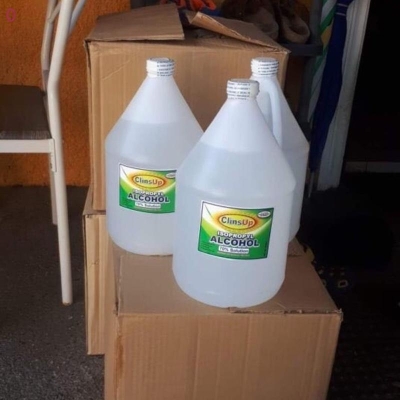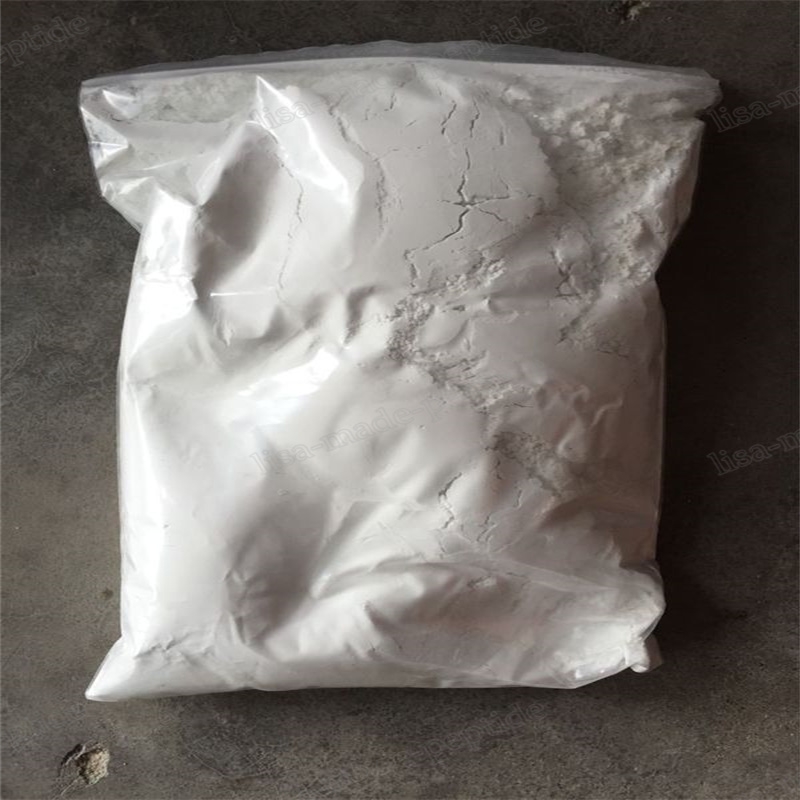-
Categories
-
Pharmaceutical Intermediates
-
Active Pharmaceutical Ingredients
-
Food Additives
- Industrial Coatings
- Agrochemicals
- Dyes and Pigments
- Surfactant
- Flavors and Fragrances
- Chemical Reagents
- Catalyst and Auxiliary
- Natural Products
- Inorganic Chemistry
-
Organic Chemistry
-
Biochemical Engineering
- Analytical Chemistry
-
Cosmetic Ingredient
- Water Treatment Chemical
-
Pharmaceutical Intermediates
Promotion
ECHEMI Mall
Wholesale
Weekly Price
Exhibition
News
-
Trade Service
[ Focus on Chemical Machinery and Equipment Network ] It is understood that most of the waste plastic recycling industries currently have low entry barriers and low technical content.
Many places are still in workshop->So, how should the site selection and layout of waste plastic recycling and recycling projects? What are the requirements for pollution control?
Chemical machinery and equipment network hotspots pay attention to chemical machinery and equipmentMany places are still in workshop->So, how should the site selection and layout of waste plastic recycling and recycling projects? What are the requirements for pollution control?
Recently, Hebei Province issued the "Emission Standards for Pollutants from Waste Plastics Recycling and Recycling Industry" (Draft for Comment) and "Technical Specifications for Pollution Control of Waste Plastics Recycling and Recycling" (Draft for Comments).
There are new standards for the technical requirements of project construction.
There are new standards for the technical requirements of project construction.
Project construction site selection
Project construction site selectionNewly built and expanded waste plastic recycling and recycling projects must comply with national laws and regulations, industrial policies, and industry development plans, as well as land use plans, urban and rural construction plans, ecological environmental protection plans, and pollution prevention plans, and strictly implement the environmental impact assessment system.
Unapproved projects shall not be constructed or organized.
Unapproved projects shall not be constructed or organized.
Encourage waste plastic recycling and recycling enterprises to concentrate production and centralized pollution control.
Establish industrial parks in areas with environmental protection carrying capacity and sufficient resources to gather waste plastic recycling and recycling enterprises to concentrate production or undertake enterprise transfers; industrial parks should build centralized sewage treatment facilities to collect and treat enterprise sewage in the park in a unified manner to ensure stability Discharge.
New, renovated and expanded enterprises should enter industrial parks established in accordance with laws and regulations, encourage enterprises outside the parks to move into the parks; improve the level of existing parks.
Establish industrial parks in areas with environmental protection carrying capacity and sufficient resources to gather waste plastic recycling and recycling enterprises to concentrate production or undertake enterprise transfers; industrial parks should build centralized sewage treatment facilities to collect and treat enterprise sewage in the park in a unified manner to ensure stability Discharge.
New, renovated and expanded enterprises should enter industrial parks established in accordance with laws and regulations, encourage enterprises outside the parks to move into the parks; improve the level of existing parks.
It is forbidden to build new waste plastic recycling and recycling enterprises in areas with ecological protection red lines, areas where basic farmland is concentrated, and other areas that require special protection.
The waste plastic recycling and recycling enterprises that have started construction and put into operation in the above-mentioned areas must withdraw through relocation, conversion and other methods.
The waste plastic recycling and recycling enterprises that have started construction and put into operation in the above-mentioned areas must withdraw through relocation, conversion and other methods.
Project construction layout
Project construction layout Newly built, renovated and expanded waste plastic recycling and recycling enterprises must have walls.
The plant area should be divided by function, including management area, raw material storage area, production area, product storage area, pollution control area (including storage and treatment area of unusable waste).
All functional areas must have enclosed or semi-enclosed facilities, and measures for wind, rain, seepage, and fire prevention must be provided.
The construction of the pipe network of the enterprise plant shall meet the requirements of "rain and sewage diversion".
The plant area should be divided by function, including management area, raw material storage area, production area, product storage area, pollution control area (including storage and treatment area of unusable waste).
All functional areas must have enclosed or semi-enclosed facilities, and measures for wind, rain, seepage, and fire prevention must be provided.
The construction of the pipe network of the enterprise plant shall meet the requirements of "rain and sewage diversion".
The enterprise should have a plant area that matches the production capacity.
Pollution control requirements
Pollution control requirements Exhaust gas: The exhaust gas generated in the process of waste plastic treatment and recycling should be set up with fully enclosed collection and treatment facilities, and after purification treatment, it will be discharged after reaching the standard.
According to the nature of the exhaust gas, treatment technologies such as catalytic oxidation, activated carbon adsorption, and spraying should be used.
If the waste gas in the recycling process contains acid gas such as hydrogen chloride, spray treatment facilities should be added, and the sewage generated by spray treatment shall be implemented as required.
According to the nature of the exhaust gas, treatment technologies such as catalytic oxidation, activated carbon adsorption, and spraying should be used.
If the waste gas in the recycling process contains acid gas such as hydrogen chloride, spray treatment facilities should be added, and the sewage generated by spray treatment shall be implemented as required.
Wastewater: Production wastewater and domestic sewage generated during the treatment of waste plastics.
Enterprises should have supporting wastewater collection and pretreatment facilities.
The collected cleaning wastewater, sorting wastewater, cooling water, etc.
should be treated separately or collectively according to the status of wastewater pollutants.
Wastewater treatment should adopt physicochemical, biochemical combined treatment technology, membrane treatment and other technologies to reduce the use of chemicals and the production of sludge.
The comprehensive fresh water consumption per ton of waste plastics shall be implemented in accordance with GB/T37821 "Technical Specifications for the Recycling of Waste Plastics".
Enterprises should have supporting wastewater collection and pretreatment facilities.
The collected cleaning wastewater, sorting wastewater, cooling water, etc.
should be treated separately or collectively according to the status of wastewater pollutants.
Wastewater treatment should adopt physicochemical, biochemical combined treatment technology, membrane treatment and other technologies to reduce the use of chemicals and the production of sludge.
The comprehensive fresh water consumption per ton of waste plastics shall be implemented in accordance with GB/T37821 "Technical Specifications for the Recycling of Waste Plastics".
Solid waste: solid waste generated in the process of waste plastic treatment and recycling.
If it is a general industrial solid waste, GB18599 "General Industrial Solid Waste Storage and Disposal Pollution Control Standard" shall be implemented, and the hazardous waste shall be handed over to the relevant hazardous waste treatment qualification Unit processing.
The sludge generated in the wastewater treatment process can be treated by the enterprise itself or handed over to the sludge treatment enterprise for treatment, and shall not be discarded at will.
If it is a general industrial solid waste, GB18599 "General Industrial Solid Waste Storage and Disposal Pollution Control Standard" shall be implemented, and the hazardous waste shall be handed over to the relevant hazardous waste treatment qualification Unit processing.
The sludge generated in the wastewater treatment process can be treated by the enterprise itself or handed over to the sludge treatment enterprise for treatment, and shall not be discarded at will.
Noise: Noise pollution should be controlled during the processing and recycling of waste plastics, and the noise emission should meet the requirements of GB12348 "Noise Standards for Industrial Enterprises and Plant Boundaries".
Original title: How to select the site and layout of the waste plastic recycling and recycling project?







